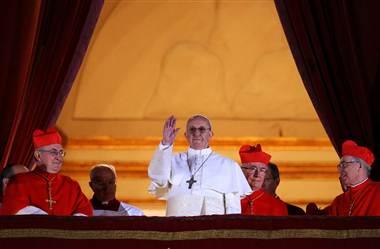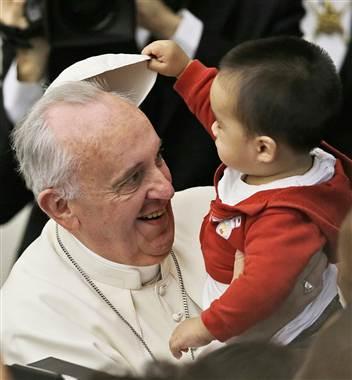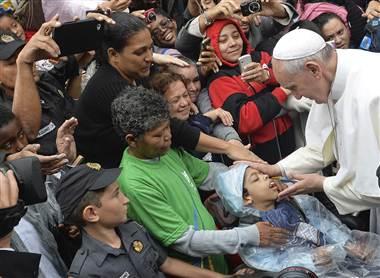'Who Am I to Judge?': the Pope's Most Powerful Phrase in 2013
By Tracy Connor
Could five little words uttered in 2013 change the course of the Catholic Church? Pope Francis — also known as Time's Person of the Year and Twitter's #bestpopeever — has done a lot of talking since he was installed on the throne of St. Peter in March, tackling everything from luxury cars to income inequality in a series of interviews, sermons and written exhortations. But for veteran Vatican watcher John Thavis, the pontiff's most significant pontificating came July 29 when he gave a press conference on a flight back from Brazil. "Who am I to judge?" he asked. Francis was addressing the issue of gays in the church, but it was the tone as much as the topic that caught the public's attention. "The fact is that previous popes in talking about homosexuality had always mentioned the word 'disordered' and when you use that term, it immediately alienates," said Thavis, author of "The Vatican Diairies." "Not only did Francis not use that word. He avoided the whole concept." The fact that the pope — the infallible leader of the world's 1 billion Roman Catholics — refused to sit in judgement of gay priests (who were banned by his predecessor) was hailed as remarkable, even revolutionary. It's an approach he has taken on any number of subjects — atheists, unwed mothers, divorcees. Scolding is out in Rome; hand-holding is in. "This comes after Pope John Paul II spent 15 years rewriting the catechism of the Catholic Church and eight years of Benedict reinforcing that: 'How do you measure up to our teachings? Are you qualified to call yourself Catholic?'" Thavis said. "Francis is saying the church is a big tent and he has to be welcoming. It's an incredible change." For Thomas Reese, a Jesuit priest like Francis, the most important words from Francis this year were written, not spoken. "Look at the title of his latest apostolic exhortation. It's 'the joy of the Gospel,' not the 'the truth of the Gospel,'" he said. "He has rebranded the church as welcoming, compassionate, a church for the poor as opposed to a church that nags people and is worried about rules and regulations," said Reese, author of "Inside the Vatican." "The analogy I love to use is when you go home for Christmas, what you want is a hug from your mom. You don't want to be asked about your nose ring, or why you dyed your hair, or who are you sleeping with now? He is trying to turn the church into a loving parent, not a nagging parent."
|
.
Any original material on these pages is copyright © BishopAccountability.org 2004. Reproduce freely with attribution.


